21 Ways to Be a Good Friend for Someone With a Mental Illness
Friendships can be vital for getting through the hard times life inevitably throws at us. If you need to cry, laugh, or forget about your worries for a little while, friends are an important support system. For those who live with mental illnesses, this social support can be especially important. Friends keep us grounded and can provide the connection we need to remind us we’re worth having around.
We asked people in our community who live with mental illnesses to tell us what makes a good friend. If you’re a friend of someone who has a mental illness, their answer might provide some insight.
Here’s what they told us:
1. “Give me a hug and let me vent. Sometimes that’s the best thing someone can do.” — Abigayle P.
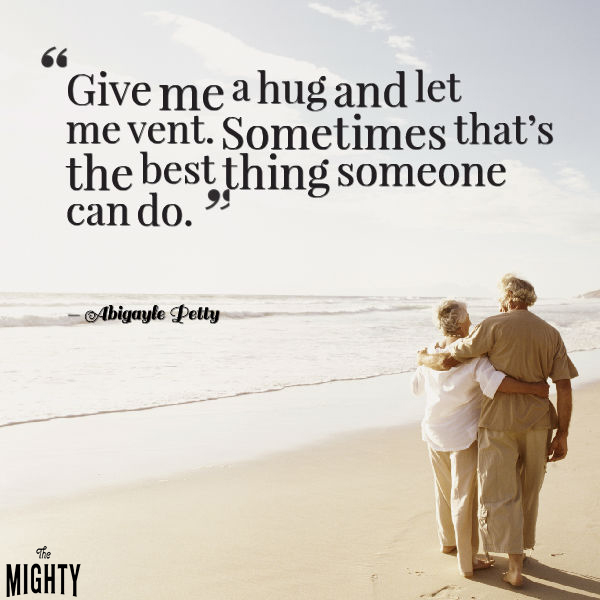
2. “Just treat me the way you did before I became ill.” — Denise C.
3. “Don’t tell me to put my big girl panties, but do tell me you support me and love me anyway.” — Andrea H.
4. “Just calling to ask how I’m doing means a great deal.” — Winona O.
5. “Don’t confuse my humor, joy, wit or intelligence as symptoms of my illness.” — Rebecca C.
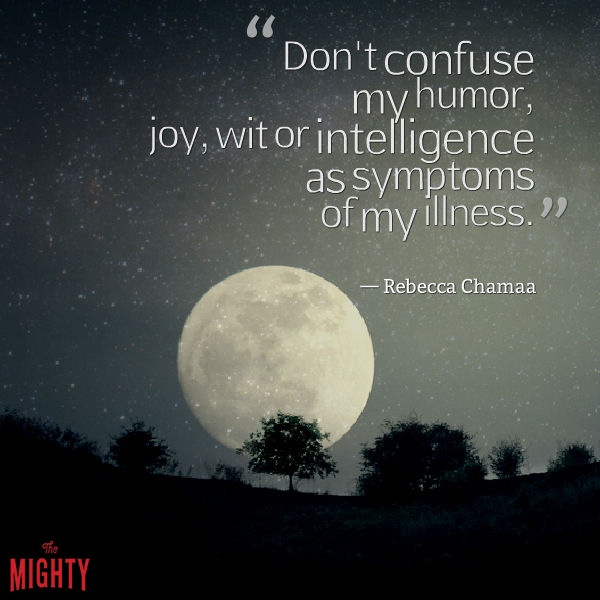
6. “Listen, provide support and understanding. Don’t be judgmental.” — Denise M.
7. “Ask me what I need, and give time when the answer is ‘I don’t know.’” — Beth Ann M.
8. “Help destigmatize. Be mindful of your language choices, privately and publicly.” — Sarah C.
9. “Please be willing to try and ride the waves with me. Just meet me where I’m at… whether I’m up or down, don’t leave me.” — Miranda T.
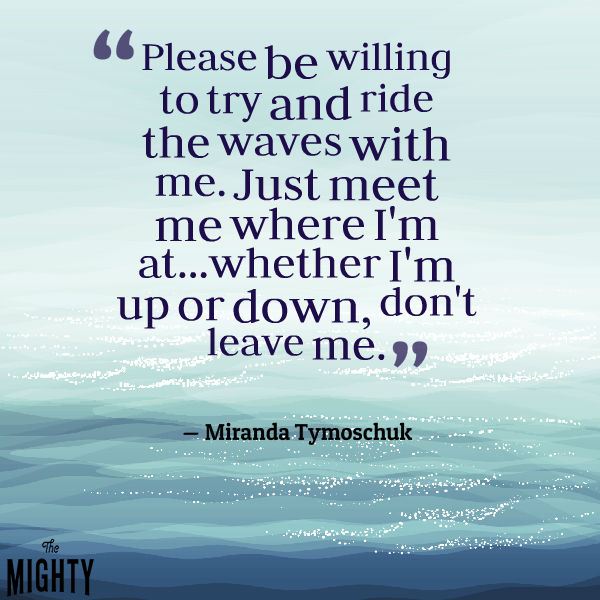
10. “My husband is a prime example. He gives me space to have my small freak outs, but is always there when I cling to him. It’s all about what they need and want at the time. It makes a huge difference” — Marcus W.
11. “The biggest support for me is to be validated. Let me know it’s OK to feel this way. I’ll be here for you and promise not to fix you, but to support you.” — Melissa F.
12. “Come to my side to help. Social media is great, but good old fashioned face time is what I need. Pull me out of my cave and keep me moving!” — Michelle B.
13. “Don’t try to ‘fix’ me — that’s my job. But encouragement and moral support? That is what I need most.” — Selena Marie W.
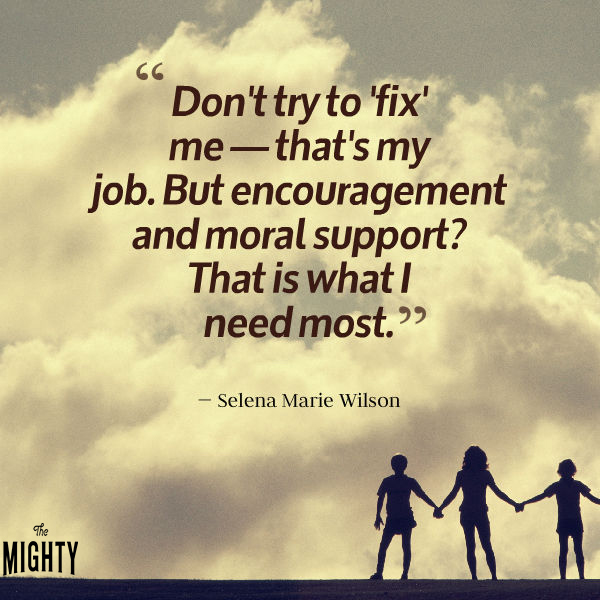
14. “I would say just be there. Listen. You don’t necessarily need to understand, but being open minded is always a plus. And comfort, give hugs, let me cry even if it sounds ridiculous. What I’m crying about isn’t ridiculous to me.” — Nikki R.
15. “I know that standing by watching someone suffer can be a lot to handle, but the best thing a friend can do is to keep being my friend and not let the mental illness come between us.” — Kimberly E.
16. “Educate yourself. You don’t need to understand everything or even why it’s happening, but a little knowledge can go a long way when it comes to support. Don’t shut down when I talk about the dark parts; I already feel bad enough. And reassure me you’ll be there at the end.” — Paige O.
17. “Understand that sometimes I can’t hang out, but not because I don’t want to. Accept that it’s in fact an illness and I’m not making an excuse.” — Shannon T.
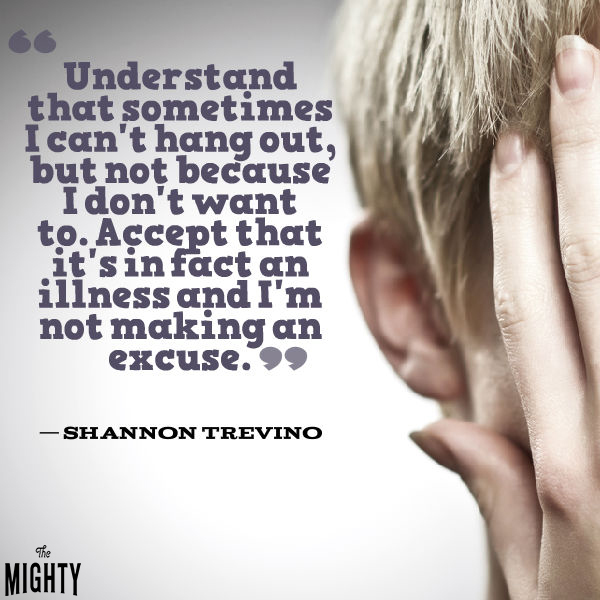
18. “My friends are great because nothing fazes them. When I return home from months in the hospital, they treat me like I’ve never been away.” — Jenny B.
19. “Continue to be my friend, and be there for me. Recognize I might need more support, or space, or just someone to listen and be present with me, but that ultimately knowing you’re there and having your friendship is the best support. The difficult feelings will pass — remind me of that — but most of all be there, listen and remind me that our friendship will still be there after a difficult time.” — Lucy I.
20. “Tell me I’m not a burden to you. Because I feel like I’m dragging you down with me when I pick up the phone and say I’m hurting, struggling or need some one to reach out to.” — MK K.
21. “I love when I can laugh with my friends. For a while I forget all about my depression and anxiety.” — MK K.
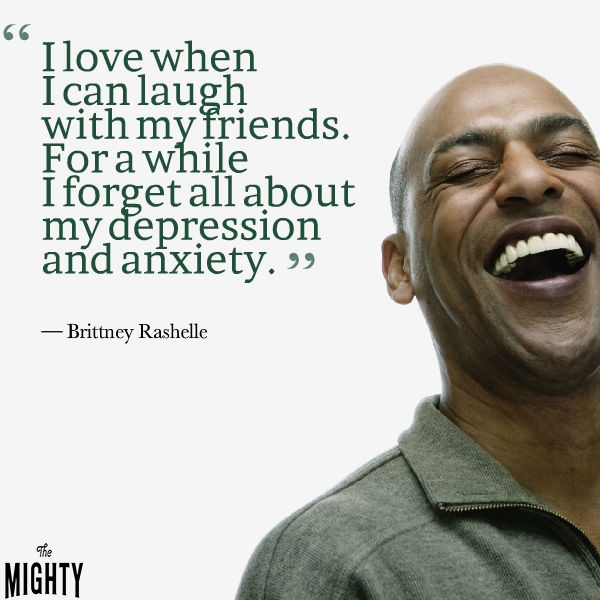
Getty image

